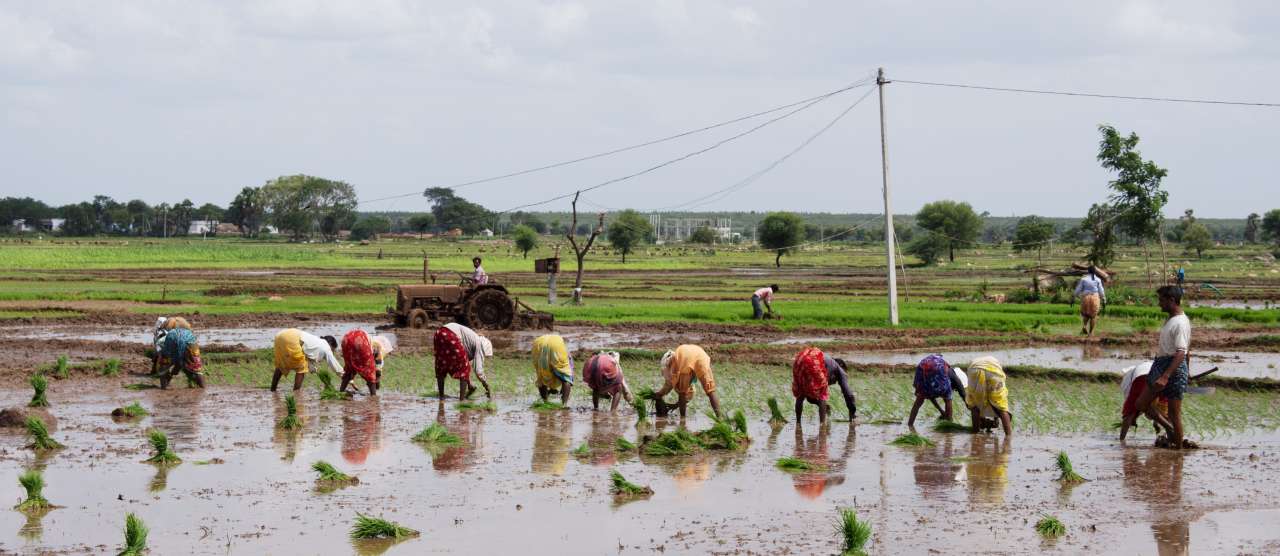Acclaim for ClimaAdapt

Rice field in Nalgonda, India, connected to the ClimaSmart project. Photo: Ragnar Våga Pedersen, NIBIO.
ClimaAdapt has been highlighted as a success story demonstrating how scientists and community leaders can work together using science to make a local impact, by the Thriving Earth Exchange programme.
ClimaAdapt, a project led by the Norwegian Institute of Bioeconomy Research (NIBIO), has been highlighted as a great example of a successful scientist-community collaboration by the science networking platform Thriving Earth Exchange (TEX), an initiative launched by the American Geophysical Union, which represents 62000 scientist members.
Since 2012, ClimaAdapt has focused on bringing up-to-date information to farmers in the three Indian states of Andhra Pradesh, Telangana and Tamil Nadu, which are already experiencing some of the effects of climate change.
In an article, TEX emphasises how the ClimateAdapt programme uses a unique mixture of information hubs known as Village Knowledge Centers and mobile phone technology to provide farmers with information they need. This model was developed by the M S Swaminathan Research Foundation in Chennai, one of the ClimaAdapt project partners.
The ClimaAdapt project established eight pilot Village Knowledge Centers in the three Indian provinces to act as information hubs. These centers offer places for farmers to connect with other farmers and to interact with scientists and technical experts associated with the project.
The ClimaAdapt project is supported by the Ministry of Foreign Affairs in Norway, through the Royal Norwegian Embassy, New Delhi. In addition to NIBIO, partners in the project include the M S Swaminathan Research Foundation, The International Water Management Institute, The Water and Land Management and Training Institute, Tamil Nadu Agricultural University and the Irrigation Management and Training Institute.
The Thriving Earth Exchange (TEX)
TEX provides a bridge between AGU scientists and local communities tackling issues of climate change, natural hazards and natural resources to co-design solutions that equitably integrate scientific and community knowledge.
